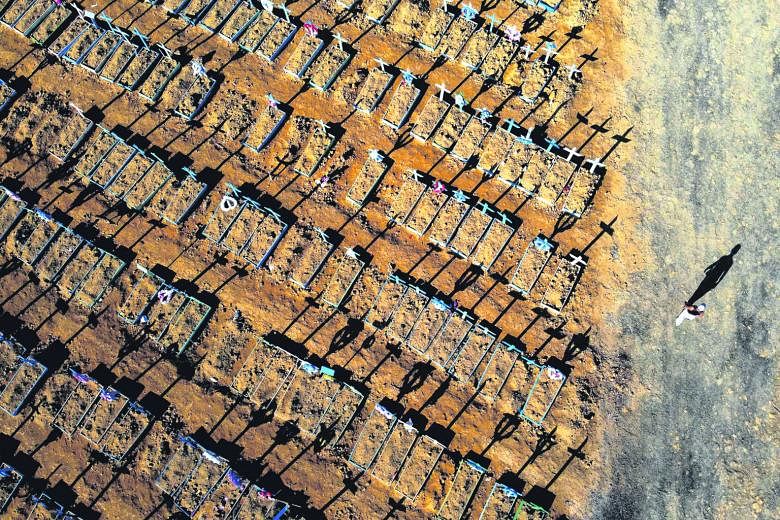A million lives lost. A million stories of tragedy.
Since December, when Covid-19 first surfaced in Wuhan, China, over 32 million people have been infected, and the coronavirus continues its reign of terror around the globe.
Deaths are expected to reach one million this weekend, based on figures from Johns Hopkins University, which has been collecting global coronavirus data since the beginning of the outbreak. The real numbers, however, are likely much higher because of gaps in testing and reporting.
Instead of improving, the situation has worsened in many places, with cases and deaths accelerating and countries battling repeated waves of infection.
The pace is relentless. In the time taken to read the first few sentences of this report, one more person has lost his fight against the virus.
The world's worst-hit countries - the United States, Brazil, India and Mexico - account for more than half of the Covid-19 deaths globally, with one in five occurring in the US. The remainder are spread over about 190 other countries and territories.
India now consistently reports the world's highest daily tally of infections, as overstretched health services struggle to control the pandemic. With over 5.8 million infections, it is second only to the US, which has about seven million cases.
In contrast, China - once the Covid-19 epicentre - has largely brought the spread of the virus under control with strict lockdowns, aggressive contact tracing and close monitoring of neighbourhoods, among other measures.
Stories of anguish but also of hope
Among South-east Asian countries, Indonesia and the Philippines have been hardest hit.
Singapore has managed to minimise lives lost, and keep hospitals free to treat the most serious cases through stringent measures across government and society - ranging from quarantine of at-risk individuals to mandatory mask-wearing - and is gradually reopening the economy amid low community infection figures.
Yesterday, the country's Covid-19 death toll stood at 27, with over 57,000 infections, the bulk of which have been among migrant workers in dormitories.
As the world mourns a million deaths from the virus, The Straits Times, with its network of correspondents, has put together a special report highlighting the faces of the pandemic in the region and beyond. From patients and their loved ones to those on the front lines, each has a tale of anguish and despair, but also of acceptance and hope.
In Indonesia, which has seen more than 10,000 deaths - the highest number in South-east Asia - gravedigger Adang Saputra's work is unending, as he sometimes buries more than 30 people a day who have died from the disease. But he believes the victims have a special place in heaven.
Mr Judd de Leon was one of about 300,000 cases in the Philippines, which now has the region's highest recorded cases. The 40-year-old was at death's door, and has yet to recover fully. Though he emerged from his hospital stay poorer, he celebrates simply being alive.
And for a family in Singapore where the infection hit three generations - grandmother, mother and daughter - the experience has brought them closer.
The fastest route to ending the pandemic and accelerating global economic recovery is to ensure that some people are vaccinated in all countries, rather than all people in some countries, says the World Health Organisation (WHO).
Almost 200 possible vaccines are being tested in the race to find one that is safe and effective. The aim is to have two billion doses available by the end of next year under a global scheme for their fair distribution.
But until vaccines are approved and made widely available, measures such as testing, social distancing and mask-wearing must be the new normal amid the pandemic.
WHO director-general Tedros Adhanom Ghebreyesus has called on all countries to use every tool at their disposal to suppress transmission and save lives, until and after a vaccine arrives.
"We must move heaven and earth to ensure equitable access to diagnostics, therapeutics and vaccines," he said at a press conference this week. "We sink or we swim together," he said. "For the world to recover faster then it has to recover together."












